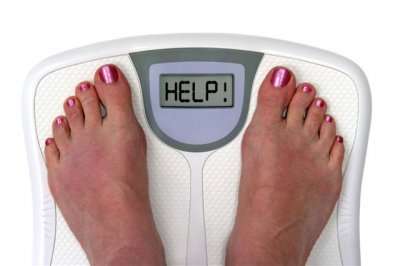by Laurel Blair, NTP
WaccoBB.net
It has long been believed that dietary fat contributes to weight gain, because fat contains more than twice the calories per gram as either carbohydrates or protein. It also seems like common sense because what you are trying tolose is fat cells in the body, so many people logically believe that they must reduce their fat intake to avoid adding to their fat stores. But things in the human body are rarely this simple. Our bodies are incredibly complex, and they have evolved mechanisms of homeostasis over many thousands of years, including mechanisms that control things like body fat.
The idea that we must reduce our fat intake to lose weight is based on something called the Caloric Balance Hypothesis, also referred to as calories in, calories out. It basically states that to lose weight you must consume fewer calories than you expend. In other words, overweight and obesity are caused by overeating and under-exercising. Naturally, dietary fat gets blamed first for overweight because the fat contains far more calories per gram. This paradigm essentially assumes that those who are overweight are lazy and undisciplined, unable to control their appetites and unwilling to exercise, and it creates a lot of guilt and self-loathing among those who are struggling unsuccessfully to lose weight. It also ignores the fact that (believe it or not) people are actually exercising more today than they did 30 years ago, which is about when obesity rates started to rise.
Weight gain (and loss) is not so simple as this hypothesis has made it out to be. Our fat tissue secretes a hormone called leptin, which reduces the appetite, increases the metabolism, and increases fat release from fat tissue. Essentially, leptin causes our bodies to take in fewer calories and simultaneously burn off more calories through increased energy expenditure. The more body fat we have, the more leptin is produced. This is a feedback loop that under ordinary circumstances will keep body mass at a preferred “setpoint”. The setpoint will be defended vigorously. If a person takes in fewer calories than are needed to maintain this setpoint, the metabolism will decrease substantially.
In order to become overweight, a person nearly always must be leptin resistant. They have plenty of fat tissue and plenty of leptin, but the leptin doesn’t affect their system the way it should. It is as though their body mass setpoint has been increased, and their body is now defending this higher body mass setpoint. A person who is leptin resistant can starve themselves and exercise until the cows come home, and they may lose some weight on this extreme regimen, but if they go back to eating a normal amount of calories they will invariably gain it all back, and possibly more. I’ve watched people close to me go through this very cycle multiple times.
What are the other effects of leptin resistance, besides weight gain? I’ll let Stephan Guyenet, Ph.D explain this one:
“The problem of leptin resistance is well illustrated by a rat model called the Zucker fatty strain. The Zucker rat has a mutation in the leptin receptor gene, making its brain unresponsive to leptin signals. The rat's fat tissue pumps out leptin, but its brain is deaf to it. This is basically a model of severe leptin resistance, the same thing we see in obese humans. What happens to these rats? They become hyperphagic, hypometabolic, obese, develop insulin resistance, impaired glucose tolerance, dyslipidemia, diabetes, and cardiovascular disease. Basically, severe metabolic syndrome.”
So what causes leptin resistance? Obviously it has to be something that is new to human physiology, because people have lived for thousands of years on a variety of different diets without having an obesity problem. Examples of healthy cultures like the Maasai, who traditionally consumed far, far more saturated and total fat than we do and yet were lean and healthy, prove that fat is not the problem. The French eat the highest rates of saturated fat in Europe and also do not have an obesity problem. Saturated fat is something that we evolved to eat. In fact, the best sources of saturated fat (meat and dairy products from grass-fed cows) are also the best sources of conjugated-linoleic acid (CLA), which has been shown to aid weight loss. I personally lost about 35 pounds on a diet that was high in saturated and total fat, without exercising any more than usual.
So then, what are we eating that is new to our physiology? Refined sugar (including high-fructose corn syrup and other corn sweeteners) and wheat flour, vegetable oils high in omega-6 fatty acids, and hydrogenated oils. These foods currently make up more than 50% of the standard American diet! All of these foods contribute to inflammation, including inflammation in the brain, where the leptin receptors are. All of these foods are also devoid of nutrition and actually increase our requirements for certain nutrients! Sugar (especially fructose) has been shown to produce leptin resistance in lab animals. One study in humans showed that just 4 weeks of fructose feeding in humans caused leptin levels to increase by 48%, without increasing body weight. This indicates that the body required more leptin to defend the same amount of fat mass, which is likely the beginning of leptin resistance.
Conversely, people on low-carb diets have been shown in studies to spontaneously reduce their caloric intake significantly even when the diets are not calorie-restricted in any way. These people also lose body fat, and these two observations together point to an increase in leptin sensitivity. Low-carb high-fat diets have also been shown to be superior for weight loss than low-fat diets, even when the low-fat diet is calorie-restricted and the low-carb diet is ad libitum (no restrictions). Here are a couple examples of studies that show this, conveniently with the full text available for free:
https://jcem.endojournals.org/conten...full?l=5579341
https://www.ncbi.nlm.nih.gov/pubmed/18635428
A low-carb diet should always be a high-fat diet, because there is a limit to the amount of protein a person can consume without depleting vitamin A stores and putting stress on the kidneys.
I’m not trying to suggest that all one needs to do to lose weight is restrict carbs. There may be other factors involved, such as thyroid problems or food sensitivities that need to be addressed. But for the majority of people, low-carb high-fat diets seem to be pretty effective. Just make sure the fat doesn’t come from hydrogenated oils or industrial vegetable oils.
Thanks for reading,
About Laurel: I'm very passionate about food and nutrition, partly because changing my diet has had a profound impact on my own health, and partly because I love to eat great food! Cooking is one of my favorite things to do - I see food preparation as a form of creative expression and something that brings people together. I'm here to spread awareness of the amazing healing powers of whole foods and traditional diets. My insatiable appetite for learning about nutrition led to my recent certification as a Nutritional Therapist Practitioner. My intention is to share my knowledge with the community and support others in improving their health with real food. Visit my website (www.dynamicbalancenutrition.com) for more information. Blessings to all!
-
 Bulletin Board
Quick Nav
Bulletin Board
Quick Nav

- Bulletin Board
- Sonoma County Bulletin Board
- General Community
- Article: Weight Loss, Fat and Leptin
Click Banner For More Info
See All Sponsors
Advertise Here
So Long and Thanks for All the Fish!
This site is now closed permanently to new posts.We recommend you use the new Townsy Cafe!
Click anywhere but the link to dismiss overlay!
Results 1 to 1 of 1
- Share this thread on:
- Follow: No Email
-
Thread Tools
-
Search Thread
-
DynamicBalance

-
Real Name: (not displayed to guest users)
-
Join Date: Sep 14, 2006
-
Location: Sebastopol
- Expressed Gratitude: 235
- Received Gratitude 398 times for 130 posts
-
Last Online 02-19-2018
- View Profile
-
 Ignore
Ignore
- Visit Homepage
-
 View Posts: (198)
View Posts: (198)
Article: Weight Loss, Fat and Leptin
-
Quick Navigation
General Community
Top
- Site Areas
- Settings
- Private Messages
- Subscriptions
- Who's Online
- Search Categories
- Categories Home
- Categories
- Sonoma County Bulletin Board
- General Community
- Coronavirus
- Coronavirus Conspiracy Theories
- Events, Classes and Meetings
- Business Directory
- Sales & Timely Offers
- Services/Referrals Wanted
- Health & Wellness
- For Sale/Free/Wanted
- Employment Offered & Wanted
- Housing/Offices
- WaccoElders
- Housesitting/Petsitting
- Pets and other Critters
- Marin County Bulletin Board
- Discussion Board
- About WaccoBB
« (Previous Thread)
Saturated Fat and Heart Disease: Unraveling the Myth
Ban the Bag? (Next Thread) »
Ban the Bag? (Next Thread) »
Similar Threads
-
Weight Loss I Need Big Help
By Rucira in forum General CommunityReplies: 1Last Post: 07-18-2007, 10:32 PM
Bookmarks
-
 Facebook
Facebook
-
 Twitter
Twitter
-
 StumbleUpon
StumbleUpon





